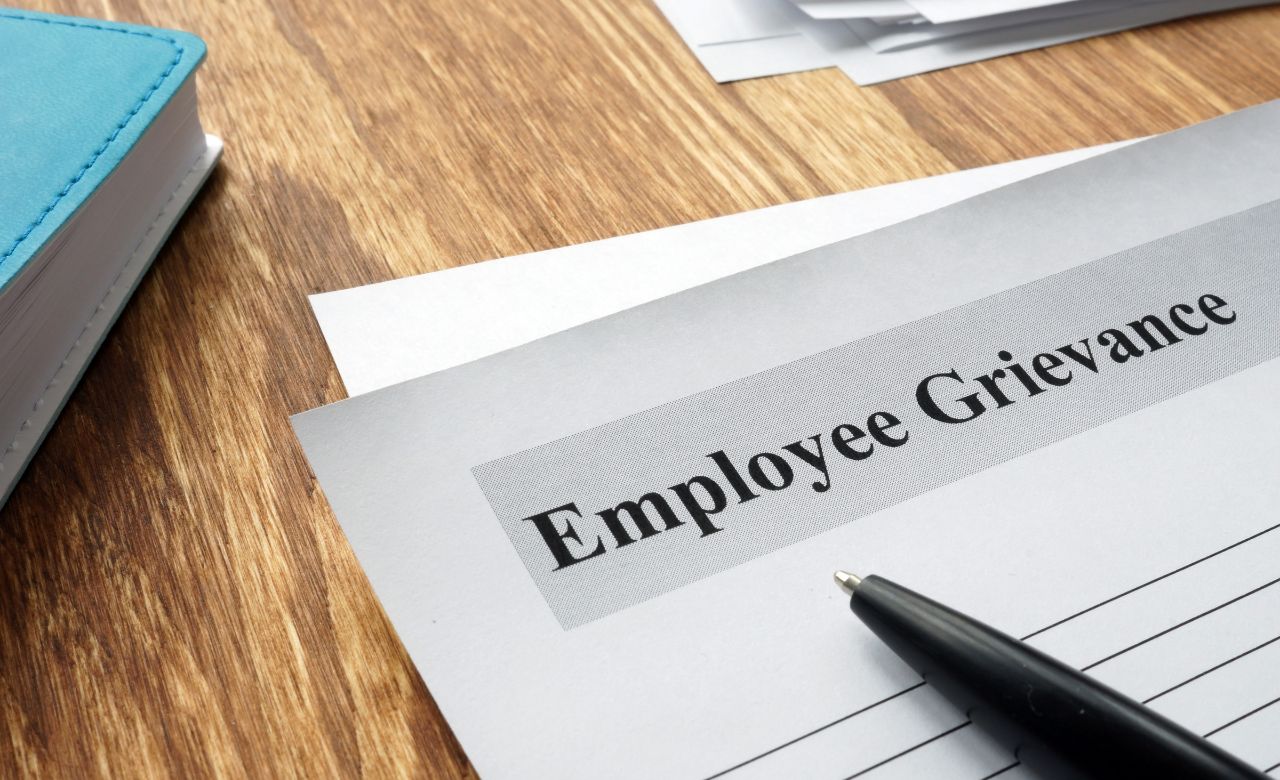
117,926 employment tribunal claims were received in 2020/2021. The most common reasons included unfair dismissals, working time directives and unauthorised deductions. Conducting consistent and fair grievance procedures can help reduce the likelihood of employment tribunals.
All employees have the right to raise a formal grievance to resolve a work concern or situation they are unhappy about. In many cases, this may happen because an issue hasn’t been resolved when raised informally with a manager or supervisor, or the matter is of a very serious nature, such as sexual harassment or discrimination.
The primary purpose of raising a grievance at work is to try and resolve a problem. If this doesn’t happen, an employee may resign and take the matter to an employment tribunal, which could result in penalties for the employer. It’s essential, therefore, that employers follow best practice in dealing with employee grievances and know what happens in a grievance hearing.
Employers must follow full and fair grievance procedures
By law, employers must set out a grievance procedure and share it in writing with their employees. It must include:
- Who the employee should contact if they have a grievance.
- How to contact this person.
It’s also a good idea to include details of the procedure, such as the stages involved, time limits for each stage, what happens in a grievance hearing, and how to appeal a grievance decision.
The ACAS Code of Practice on Grievances provides practical guidance on how employers can correctly and fairly deal with a grievance.
While this code isn’t legally binding, an employment tribunal may reduce or increase any money awarded in a case by up to 25% if it hasn’t been followed.
Employers should take a formal grievance seriously and investigate it thoroughly. You should take action and make decisions as soon as possible, ensuring all parties have their say.
Steps in the grievance process
Typical stages in a formal grievance procedure:
- The employee makes a formal complaint to the employer – usually in the form of a written letter – stating their concerns and issues.
- Employer investigates the grievance thoroughly, taking note of facts.
- A grievance hearing meeting is held between the employer and employee (and representatives or fellow colleagues, if needed) to allow the employee to discuss their concerns formally and in greater detail.
- A decision is made, and the employee is informed in writing of the decision. Any resulting action is taken if required to resolve the grievance.
- The employee can appeal if they’re unhappy with the outcome of the grievance hearing. This appeal should be made in writing and as soon as possible to avoid delay.
- A grievance appeal meeting is held to re-examine the decision. Any further evidence that has emerged can be used and allow the employee to explain their reason for appealing.
- The decision is made following the grievance appeal meeting, which should be written and given to the employee, stating that this is the final outcome. The employee has the right to proceed to a tribunal if still not satisfied with the result.
The grievance hearing meeting
The grievance hearing is one of the most important steps of the grievance procedure, so it’s important to know what happens in a grievance hearing.
Held between the employer and the employee and their representatives, if required, the meeting is a chance for the employee to explain their grievance and any evidence they may have. The employer can then make a decision based on the meeting.
Using the guidelines from ACAS, these are the steps involved when conducting a grievance hearing.
Preparation before hearing
- Arrange a hearing within around five days of the employee raising a grievance. Give the employee enough time to prepare.
- Make it clear to the employee that they have the right to be accompanied during the meeting. This person can be another colleague or a trade union representative.
- You should also arrange for another person (not involved in the grievance) to take notes and witness the meeting. You need to keep a confidential record of the meeting, any evidence and decisions or actions taken.
What happens in a grievance hearing
- The employer should start the meeting by introducing all attendees and explaining their roles. Confirm the role of the employee’s representative and explain they were offered the right for someone to attend with them.
- Outline the stages of the hearing and what will happen, such as the decision will be made based on the hearing and any evidence given.
- Invite the employee to explain their grievance. They should state how they wish their grievance should be solved and provide any evidence they have. Question and take statements from witnesses, if there are any. As the employer, you need to remain impartial and take time going through evidence and taking the employee’s feelings into account.
- Close the hearing after the grievance is explained and questions completed.
- If you need to take more time to investigate further, let the employee know when to expect a decision. Give the employee copies of notes made during the meeting.
- Aim to notify the employee of your decision within seven days of the hearing.
Tips for the employer
- Stay calm – emotions can understandably run high in grievance meetings.
- Remain impartial and fair.
- Take notes or ask someone else to take them.
- Consider ending the meeting and resuming it later if more information is required or further investigation is needed.
When deciding on the outcome, it should be fair and based on the findings from meetings and investigations. The decision should be made in writing to the employee, and they should be offered the right to appeal if they disagree with your decision.
In some cases, the employee’s grievance may involve other employees and their behaviour. In this case, disciplinary action may be needed.
Our Disciplinary Process eLearning course helps employers and managers understand the procedure of conducting an effective disciplinary hearing and the process.




